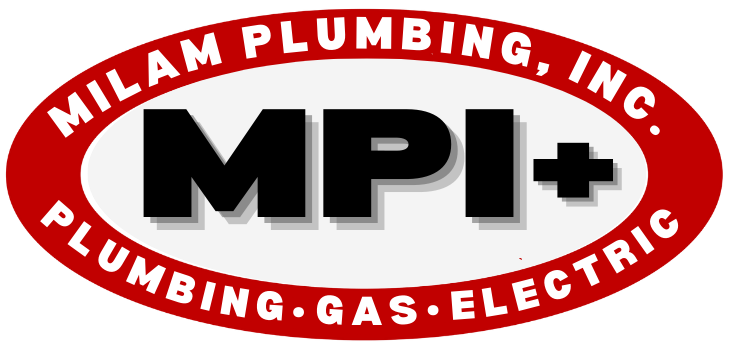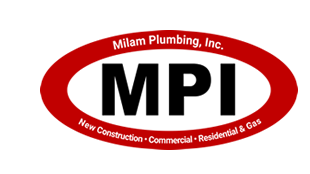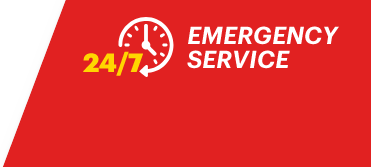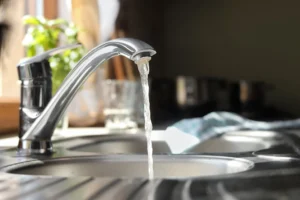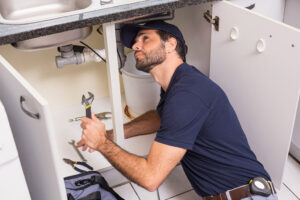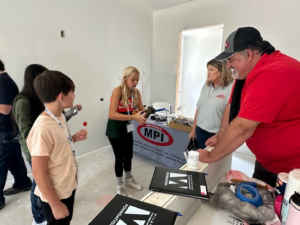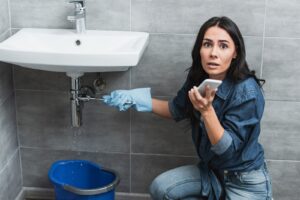Wilmington, North Carolina, is known for its inviting mild climate, where winters are typically soft and summers are marked by warmth and humidity. While this temperate weather offers residents a comfortable lifestyle, it also presents unique challenges for plumbing systems throughout the year. The combination of occasional cold snaps and persistent humidity can lead to issues that, if left unchecked, could escalate into costly repairs.
That’s why proactive plumbing maintenance is essential for homeowners in our coastal community. Regular upkeep not only safeguards your plumbing system but also ensures that it operates efficiently, prolonging its lifespan and reducing the risk of unexpected emergencies. By staying ahead of seasonal changes and implementing a few simple maintenance practices, you can keep your plumbing in top shape year-round.
Understanding Wilmington’s Climate
Wilmington’s climate features mild winters, where temperatures rarely dip to freezing, contrasted by hot, humid summers that can bring heavy rainfall and thunderstorms. While these conditions create an enjoyable environment for outdoor activities, they can also have significant effects on your plumbing system.
During the mild winter months, homeowners may overlook the importance of plumbing maintenance, mistakenly believing that their systems are immune to cold-weather issues. However, sudden drops in temperature can still cause pipes to contract, potentially leading to leaks or cracks. Conversely, the humid summer months can foster moisture buildup, increasing the risk of mold and mildew around plumbing fixtures. Additionally, intense rain can overwhelm drainage systems, resulting in clogs and backups.
Understanding how Wilmington’s seasonal changes impact your plumbing can help you take the necessary steps to prevent issues before they arise. With a little foresight and regular maintenance, you can ensure that your plumbing remains reliable, regardless of the weather outside.
Preventing Humidity Issues
Managing humidity effectively is crucial for maintaining a healthy and efficient plumbing system in Wilmington’s moist climate. High humidity levels can lead to various plumbing-related problems, including mold growth and pipe deterioration. Here are some practical strategies to keep your home dry and your plumbing system in top condition.
A. Managing Indoor Humidity
- Use of Dehumidifiers:
- One of the most effective ways to combat high indoor humidity is by using dehumidifiers. These devices can help reduce moisture levels in your home, especially in areas prone to dampness, such as basements and crawl spaces. By keeping humidity levels between 30-50%, you can create an environment that discourages mold growth and helps protect your plumbing system.
- Importance of Proper Ventilation:
- Ensuring adequate ventilation in key areas of your home is essential for controlling humidity. Bathrooms and kitchens are particularly susceptible to moisture buildup due to activities like showering and cooking. Installing exhaust fans and ensuring they are used regularly can significantly reduce humidity levels. Additionally, opening windows during milder weather can promote airflow and further help dissipate moisture.
B. Addressing Potential Problems
- Tips on Identifying and Preventing Mold and Mildew:
- Regularly inspect areas of your home that are prone to moisture, such as around sinks, showers, and appliances. Look for signs of mold or mildew, such as dark spots or a musty odor. If you notice any of these indicators, it’s crucial to address them promptly to prevent further growth. Cleaning surfaces with a mixture of water and vinegar or a specialized mold-removal solution can help eliminate these issues.
- Signs of Humidity-Related Plumbing Issues:
- Be vigilant for signs that your plumbing system may be suffering due to excessive humidity. Common indicators include water stains on walls or ceilings, peeling paint, and an increase in condensation on pipes. If you observe any of these warning signs, it’s essential to investigate further and consider consulting a plumbing professional to assess the situation and recommend appropriate solutions.
By proactively managing humidity levels and addressing potential problems early, homeowners in Wilmington can protect their plumbing systems from the adverse effects of moisture, ensuring a safe and healthy living environment.
Maintaining Water Heaters
Maintaining your water heater is essential to ensure it operates efficiently and lasts for years. In Wilmington’s unique climate, where humidity can lead to increased wear and tear, regular water heater maintenance becomes even more important. Here’s a closer look at why maintenance matters and how to keep your water heater in top shape.
A. Importance of Regular Maintenance
- Why Regular Checks Are Crucial for Efficiency and Longevity:
- Regular maintenance is key to ensuring your water heater functions optimally. Over time, sediment can build up at the bottom of the tank, which can lead to decreased efficiency and increased energy costs. Additionally, neglecting routine checks can shorten the lifespan of your unit, resulting in costly repairs or premature replacement. By taking proactive steps to maintain your water heater, you can save money in the long run while enjoying reliable hot water when you need it.
B. Seasonal Checks to Perform
- Flushing the Water Heater to Remove Sediment Buildup:
- Flushing your water heater at least once a year is essential to remove sediment that accumulates over time. This process not only improves efficiency but also helps prevent damage to the tank. To flush your water heater, turn off the power supply, connect a hose to the drain valve, and allow the water to flow until it runs clear. This simple task can significantly enhance your unit’s performance.
- Checking the Anode Rod for Corrosion:
- The anode rod is a crucial component in preventing corrosion within your water heater. This rod attracts corrosive elements, protecting the tank from rust. It’s a good practice to check the anode rod every couple of years. If it appears to be significantly corroded (less than ½ inch thick), it should be replaced. Keeping the anode rod in good condition can prolong the life of your water heater.
C. Professional Inspections
- When to Consider Hiring a Professional for Maintenance:
- While many maintenance tasks can be performed by homeowners, some checks may require the expertise of a professional. If you notice any leaks, unusual noises, or inconsistent hot water supply, it’s advisable to call a licensed plumber to inspect your water heater. Regular professional inspections can identify potential issues early, helping to avoid more significant problems down the line.
By prioritizing the maintenance of your water heater, you ensure that it runs efficiently and remains reliable throughout the year. In Wilmington’s climate, where humidity can be a concern, taking these steps can help you enjoy uninterrupted hot water and extend the life of your system.
Preventing Clogs and Backups
Clogs and backups are among the most common plumbing issues homeowners face, particularly during Wilmington’s wet seasons. Proactive measures can significantly reduce the likelihood of these problems, ensuring that your plumbing system remains efficient and reliable. Here’s how you can prevent clogs and backups throughout the year.
A. Seasonal Advice
- Tips on Preventing Clogs During Heavy Rainfall and Storms:
- Clear Drains and Vents: Before a storm hits, check that all outdoor drains and vents are clear of debris. Heavy rainfall can overwhelm clogged drains, leading to backups. Ensure that your yard’s drainage systems are unobstructed to allow water to flow freely away from your home.
- Inspect Sump Pumps: If your home has a sump pump, inspect it regularly, especially before the rainy season. Test its functionality to ensure it can handle increased water flow. Consider installing a backup power source to prevent failures during power outages.
- Use Drain Covers: Place mesh drain covers over outdoor drains and gutters to prevent leaves, twigs, and other debris from entering the plumbing system during storms. Regularly remove accumulated debris from these covers.
- Importance of Keeping Gutters and Downspouts Clear:
- Clogged gutters can lead to water overflow, which may saturate the soil around your home’s foundation and increase the risk of flooding. Ensure that gutters are cleaned regularly, particularly in the fall when leaves can quickly accumulate. Downspouts should direct water away from the house to prevent water from pooling near the foundation, which can lead to leaks and backups.
B. Best Practices for Homeowners
- Recommended Practices for Waste Disposal:
- Mind What You Flush: Only flush toilet paper and human waste down the toilet. Flushing non-degradable items such as wipes, feminine hygiene products, and paper towels can lead to clogs. Educate your family members on proper disposal methods to prevent costly plumbing repairs.
- Avoid Pouring Grease Down the Drain: Never pour grease, oil, or fatty substances down the kitchen sink. These substances can solidify and cause serious clogs in your plumbing. Instead, collect grease in a container and dispose of it in the trash.
- Regular Cleaning of Drains:
- Implement a Routine Cleaning Schedule: Regularly clean your drains to prevent buildup that can lead to clogs. Use a mixture of baking soda and vinegar to break down debris and eliminate odors. Flush with hot water afterward to keep your pipes clear.
- Consider Professional Drain Cleaning: If you notice slow drainage or recurring clogs, it may be time to schedule a professional drain cleaning. Plumbers can use specialized equipment to thoroughly clean your pipes and remove stubborn blockages.
By implementing these preventive measures, homeowners in Wilmington can significantly reduce the risk of clogs and backups in their plumbing systems. Staying vigilant, especially during heavy rainfall and stormy seasons, will ensure your home remains protected from plumbing emergencies.
Routine Inspections
Routine plumbing inspections are a key aspect of maintaining a healthy plumbing system. Regular checks not only help identify potential issues before they escalate but also provide homeowners with peace of mind. Here’s a closer look at the importance of these inspections and what to expect when you schedule one.
A. Benefits of Regular Plumbing Inspections
- Catching Potential Issues Early to Avoid Costly Repairs:
- Proactive Approach: Regular inspections allow plumbers to identify minor issues, such as leaks, corrosion, or worn-out fixtures, before they become major problems. Addressing these concerns early can save homeowners from expensive repairs and extensive property damage.
- Enhanced System Efficiency: Routine checks help ensure that your plumbing system operates efficiently, potentially reducing water bills and conserving resources. An efficient system not only serves your household better but also contributes to a more sustainable environment.
B. What to Expect During an Inspection
- Common Checks Performed by Professionals:
- Visual Inspection: Plumbers will inspect visible pipes, fixtures, and appliances for signs of wear, leaks, or corrosion. They will check areas such as under sinks, around water heaters, and in basements or crawl spaces.
- Leak Detection: Professionals use specialized tools to detect hidden leaks that may not be visible to the naked eye. This includes testing water pressure and examining the integrity of water lines.
- Drainage Assessment: A thorough inspection of your drainage system ensures that drains are clear and functioning correctly. Plumbers may use video cameras to inspect pipes for blockages or structural issues.
- Recommended Frequency of Inspections for Homeowners:
- Annual Inspections: It is generally recommended that homeowners schedule a plumbing inspection at least once a year. This frequency allows for timely identification of any emerging issues and keeps your plumbing system in optimal condition.
- Additional Checks During Seasonal Changes: Consider scheduling extra inspections before significant seasonal shifts, such as before summer storms or during winter. These inspections can help prepare your plumbing system for the demands of the changing weather.
Conclusion
In conclusion, maintaining a proactive approach to plumbing maintenance is crucial for homeowners in Wilmington, NC. Seasonal changes can significantly impact your plumbing system, making it essential to adopt preventative measures, such as humidity management, water heater maintenance, and routine inspections.
By taking the time to care for your plumbing system and addressing issues before they escalate, you can protect your home and save on costly repairs. Don’t wait for a plumbing emergency to arise—make plumbing maintenance a priority.
For expert plumbing services and thorough inspections, contact Milam Plumbing today. Our experienced team is ready to help you keep your plumbing system in top shape year-round!
